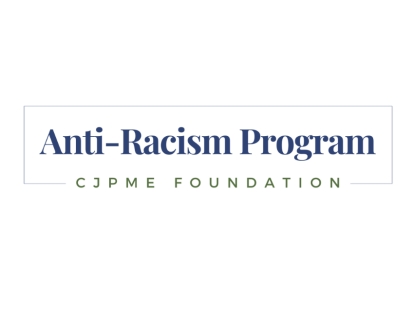 CJPME
CJPME
May
Canadians for Justice and Peace in the Middle East (CJPME) New Nakba Bill: Interview MP Matthew Green
Written by CJPMETomorrow, May 15, will mark the 76th anniversary of the Palestinian Nakba (‘catastrophe’ in Arabic), the expulsion, destruction, and ethnic cleansing of Palestine associated with the creation of Israel in 1948. As the last seven months have made clear, the Nakba is a process that has never ended, as Palestinians continue to face brutal Israeli violence in Gaza and elsewhere.
Between 1947 and 1949, during the creation of Israel, a minimum of 700,000 Palestinians were forcibly expelled from their homes by Jewish militias. The flight of refugees was accelerated by a series of massacres conducted by Jewish terrorists, including the massacre of over 100 men, women, and children in the village of Deir Yassin one month before Israel declared “Independence.” Over 13,000 Palestinians were killed in this period. As a result of the Nakba, there are today more than 7 million Palestinian refugees, including Nakba survivors and their descendants, who are living in refugee camps or in exile.
With the people removed from Palestine, Israeli forces demolished more than 500 Palestinian villages and built Israeli parks and forests over the ruins. In a massive act of theft, Israel enacted laws to expropriate refugees’ property, and stole approximately 4,244,776 acres of Palestinian land. To make sure that this injustice would be permanent, Israel passed laws banning Palestinian refugees from returning to their homes.
This is not simply a historical tragedy. Understanding the Nakba is essential to understanding the character of the State of Israel today. Israel’s removal of the indigenous population allowed it to claim that it has a “Jewish demography majority” in the 1948 territories, which feeds the myth that Israel is a “Jewish and democratic” state today. Israel’s racist policies against refugees are an important part of how it continues to uphold a system of apartheid against the Palestinians as a whole, as recognized by Amnesty International and other experts.
Today, the ongoing Nakba can be seen in the way Israel has wrought its brutal assault and genocide on the civilians of Gaza, and how it continues to dispossess and marginalize or remove Palestinians in other areas under its control, for the benefit of the Jewish Israeli population. This includes Israel’s demolitions of Palestinian homes in occupied East Jerusalem, its threats of forced expulsions in Sheikh Jarrah and Masafer Yatta, and the expansion of Jewish-only colonies in the occupied West Bank. It can also be seen in Israel’s home demolitions and ‘Judaization’ policies in the Galilee and the Negev, regions within Israel that continue to have significant Palestinian Arab and Bedouin communities. As such, Israel continues its colonial and apartheid policies against Palestinians on both sides of the Green Line.
CJPME has long called on Canadians to finally address this historical and ongoing injustice. Below are three specific actions that the Canadian government and other institutions can take:
First, the Canadian government must formally recognize the Nakba. The Nakba has never been acknowledged by the Canadian government or other public institutions, including the Canadian Museum for Human Rights. This is despite Canada’s role in the creation of the problem through its support for the partition of Palestine in 1947. This year, for the first time, the Nakba is being officially commemorated by the United Nations, but Canada opposed this initiative when it came to a vote late last year. Canada must drop its hostility to Palestinian perspectives and finally name this injustice.
Second, the Canadian government must work to allow Palestinians to exercise the right of return. Palestinian refugees have a fundamental and legal right to return to their homes. This right is enshrined in the Universal Declaration of Human Rights which states that “everyone has the right to leave any country, including his own, and return to his own country.” This right has also been affirmed by UN Resolution 194 (1948), among others, which says that Palestinian refugees must be allowed to their homes if they choose, and/or receive compensation for damages and property lost. Canada must push for Palestinians to be able to exercise this right, and call for reparations and other compensation for the large-scale dispossession of lives, land, and property.
Third, all Canadian institutions must take steps to address Nakba denial as a form of anti-Palestinian racism. In a 2022 report by the Arab Canadian Lawyers Association (ACLA), denying the Nakba was identified as a key manifestation of anti-Palestinian racism. Nakba denial is a significant problem in Canadian society, as supporters of Israel seek to characterize the Palestinian experience of dispossession as a “myth,” or to blame the victims for their own tragedy. To address this persistent problem, institutions should affirm Palestinian experiences and adopt measures to combat anti-Palestinian racism.
CJPME has long called for the Canadian government to formally recognize the Nakba, and NDP MP Matthew Green is introducing a bill in Parliament demanding such recognition. Listen as CJPME’s Wissam El Cheikh Hassan talks with Green about his new Nakba Bill on our newly relaunched “Palestine Debrief” podcast. Green does not mince words in this fascinating conversation about Canada’s complicity in the Nakba.
In December of last year NDP MP Matthew Green took the lead in sponsoring a Private Member’s bill, informally named “the Nakba Bill.” While the text of Green’s bill has not been made public, Green has made clear that his bill will call for Canada to formally acknowledge the Nakba and its tragic consequences for the Palestinian people. We talk private member bills, the Nakba, Parliament's Palestine motion, Canada's culpability, the IOF, the chances of Green's bill passing, and sleeping better at night. It is worth noting that past Nakba bills introduced around the world failed to pass, including those by Rashida Tlaib in the US, and Layla Moran both in the UK, both of whom are Palestinians. Matthew Green is not Palestinian.














